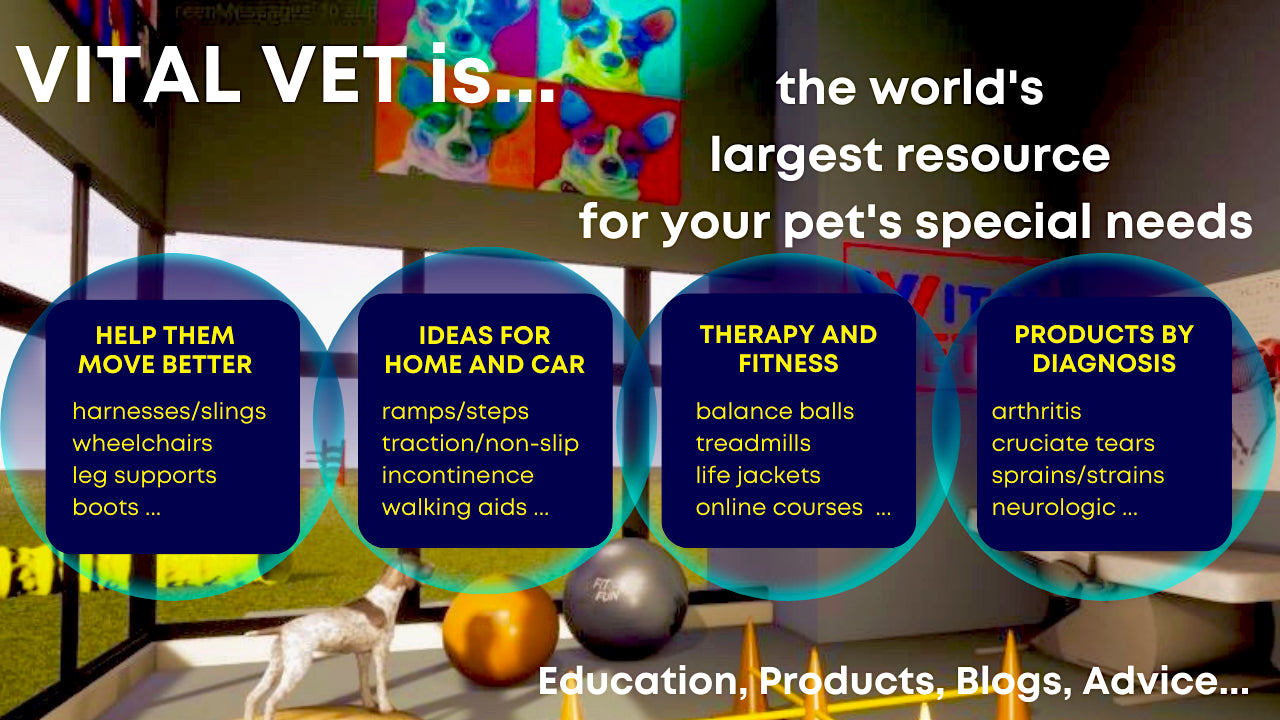Vital pet sets the stage for this enthralling narrative, offering readers a glimpse into a story that is rich in detail and brimming with originality from the outset. The importance of proper pet nutrition cannot be overstated, as it forms the cornerstone of overall wellbeing for our furry companions. Balancing essential nutrients, understanding care practices, and recognizing behavioral cues are pivotal in ensuring that pets lead healthy, happy lives.
Importance of Vital Pet Nutrition
Balanced nutrition is fundamental to the overall well-being of pets, playing a crucial role in their growth, development, and longevity. Just like humans, pets require a diet that offers a variety of nutrients to maintain optimal health. Ensuring a well-rounded diet not only keeps pets energetic and vibrant but also helps in preventing numerous health issues.
Essential nutrients are vital for pets’ health. These include proteins, fats, carbohydrates, vitamins, and minerals. Proteins serve as the building blocks for tissues and muscles, while fats provide energy and support cell function. Carbohydrates are important for energy, vitamins help in various metabolic processes, and minerals contribute to bone health and other physiological functions. Each nutrient plays a specific role, and a deficiency in any one of them can lead to significant health problems.
Essential Nutrients Required for Optimal Health
A well-balanced diet must include diverse essential nutrients. The following are critical components that contribute to a pet’s health:
- Proteins: These are necessary for growth, tissue repair, and immune function. High-quality animal-based proteins are preferable as they contain all essential amino acids.
- Fats: Essential fatty acids like omega-3 and omega-6 support brain health and skin function. They are also crucial for energy.
- Carbohydrates: While not strictly necessary, carbohydrates provide energy and can aid in digestive health when sourced from whole grains and vegetables.
- Vitamins: These organic compounds, such as Vitamin A, D, and E, are vital for immunity, vision, and overall metabolic functions.
- Minerals: Calcium, phosphorus, and potassium are important for bone health, nerve function, and muscle contractions.
Common nutritional deficiencies can have detrimental effects on pets. For instance, a lack of protein can lead to muscle wasting and a weakened immune response. Insufficient calcium can result in bone disorders, particularly in growing puppies and kittens. Moreover, deficiencies in essential fatty acids can cause skin issues and poor coat quality. Recognizing these deficiencies early is key to implementing dietary adjustments and improving the health outcomes for pets.
“Proper nutrition is the foundation of good health; deficiencies can lead to significant health risks.”
Understanding the significance of these nutrients and ensuring they are present in the diet can greatly enhance the quality of life for pets, enabling them to thrive in their environments.
Vital Pet Care Practices

Maintaining overall pet wellness is essential for a happy and long life. Proper care practices not only improve the quality of life for pets but also reduce the risk of health issues down the line. A proactive approach to pet care ensures that they remain healthy, active, and content throughout their lives.
Regular veterinary check-ups and preventive care play a crucial role in safeguarding your pet’s health. These practices allow for early detection of potential health problems, vaccinations, and essential advice from professionals. Moreover, preventive measures contribute to a healthier, more fulfilling life for pets, helping to avoid acute illnesses that can lead to complex treatments.
Regular Veterinary Check-ups and Preventive Care
Regular veterinary visits are fundamental to a pet’s overall health. It is recommended that pets have annual check-ups, which can include physical examinations, dental evaluations, and vaccinations tailored to their specific needs. Early diagnosis of conditions such as obesity, dental disease, or skin issues can significantly enhance the effectiveness of treatment options available.
Veterinarians also provide vital insights into diet, exercise, and behavior, guiding pet owners to make informed decisions regarding their furry companions. Moreover, preventive care services, such as heartworm testing and flea control, are critical in keeping pets safe from diseases caused by parasites. A healthy pet is often a happy pet, and regular check-ups are the key to achieving this balance.
Essential Pet Care Routines
Establishing a consistent routine is critical for pet health and happiness. Below is a checklist of essential pet care practices, ensuring that every aspect of your pet’s well-being is addressed:
These routines not only enhance the physical health of pets but also promote emotional well-being, making pets more resilient and adaptable.
If you’re a cat owner looking to enhance your pet’s lifestyle, the furbo cat is an excellent choice. This innovative device allows you to interact with your feline friend remotely, ensuring they stay engaged even when you’re not home. With its unique features, Furbo redefines how we connect with our pets, making it a must-have for modern cat lovers.
- Grooming: Regular grooming helps maintain a pet’s coat, skin health, and reduces shedding. It also provides an opportunity to check for abnormalities or parasites.
- Exercise: Daily exercise is vital for mental and physical stimulation. Activities like walking, running, or playing fetch contribute to cardiovascular health and prevent obesity.
- Dental Care: Oral hygiene is crucial; brushing your pet’s teeth and providing dental chews can help prevent periodontal disease.
- Socialization: Regular interaction with other animals and people fosters good behavior and reduces anxiety in pets.
- Nutrition: Balanced nutrition tailored to the specific needs of your pet breeds and life stages is fundamental for growth, energy, and health maintenance.
“A well-cared-for pet is a happy pet, and a happy pet creates a joyful home.”
By implementing these best practices, pet owners can ensure a comprehensive approach to their pet’s health and happiness.
Vital Pet Products and Supplies

Selecting the right products and supplies for your pets is essential for their overall health and happiness. From nutritious food to engaging toys, the choices you make directly impact their well-being. Understanding the must-have items and the benefits they bring can help pet owners cultivate a nurturing environment for their furry companions.
Must-Have Products for Pet Owners
To ensure a healthy and fulfilling life for pets, certain products are indispensable. These items not only boost physical health but also enhance emotional well-being. The following list includes vital categories of pet supplies every owner should consider:
- High-Quality Pet Food: Providing balanced nutrition is crucial. Look for products that meet the AAFCO standards for pet food.
- Water Dispenser: Fresh water is foundational for hydration. Automated dispensers encourage pets to drink more often.
- Interactive Toys: Engaging toys stimulate mental health, reduce boredom, and foster physical activity.
- Comfortable Bedding: A warm, cozy bed contributes to a pet’s restful sleep and can reduce anxiety.
- Health Monitoring Gadgets: Devices that track activity and health metrics can proactively manage pet health.
Comparison of Popular Pet Food Brands and Nutritional Benefits
Understanding the nutritional profiles of various pet food brands can assist owners in making informed decisions. The table below compares several well-regarded brands based on their key nutritional offerings:
| Brand | Main Ingredients | Protein Content (%) | Unique Benefits |
|---|---|---|---|
| Royal Canin | Chicken, rice | 30 | Custom formulas for specific breeds |
| Blue Buffalo | Deboned chicken, whole grains | 24 | Real meat and natural ingredients |
| Hill’s Science Diet | Chicken meal, barley | 26 | Vet-recommended for joint health |
| Wellness Core | Turkey, chicken meal | 38 | Grain-free with high protein |
Innovative Pet Gadgets that Promote Health and Activity
With advances in technology, numerous innovative pet gadgets have emerged, playing a pivotal role in enhancing pets’ health and encouraging activity. These gadgets not only assist in health monitoring but also enrich the daily lives of pets. Some noteworthy innovations include:
- Automatic Ball Launchers: These devices allow pets to play fetch without the need for human intervention, promoting exercise and fun.
- Wearable Activity Trackers: Similar to smartwatches, these trackers monitor pets’ activity levels and provide insights into their daily behavior.
- Smart Feeders: These can be programmed to dispense food at designated times, ensuring pets receive their meals consistently.
- Interactive Cameras: Cameras with treat dispensers allow pet owners to monitor and interact with their pets remotely, easing separation anxiety.
Vital Pet Behavioral Insights

Understanding pet behavior is fundamental for nurturing a harmonious and enriching relationship between pets and their owners. By appreciating the nuances of how pets communicate, express emotions, and respond to stimuli, pet owners can significantly enhance their companionship experience. This knowledge fosters a bond built on mutual respect and understanding, resulting in a more fulfilling partnership.
Importance of Understanding Pet Behavior, Vital pet
Recognizing and interpreting pet behavior is essential for ensuring their well-being and happiness. Behavioral insights help in identifying the needs and emotions of pets, allowing owners to respond appropriately. This understanding can lead to improved training outcomes and a more satisfying companionship.
Techniques to Enhance Pet Training and Communication
Effective communication forms the basis of successful pet training. Utilizing consistent cues and positive reinforcement encourages desired behaviors and strengthens the bond between pet and owner. Here are key techniques for enhancing training and communication:
- Positive Reinforcement: Rewarding pets with treats, praise, or playtime when they exhibit good behavior reinforces that behavior.
- Consistency: Using the same commands and cues consistently helps pets understand expectations and reduces confusion.
- Body Language Awareness: Understanding your pet’s body language, such as tail positions and ear movements, facilitates better communication.
- Scheduled Training Sessions: Regular, short training sessions keep pets engaged and make learning efficient.
Utilizing these techniques can create a supportive environment that fosters learning and improves the overall behavior of pets.
Strategies for Recognizing and Addressing Common Behavioral Issues
Behavioral issues in pets can arise from various sources, such as stress, lack of exercise, or inadequate training. Early recognition of these issues is crucial for effective management. Common behavioral problems include aggression, anxiety, and destructive behavior. Addressing these issues involves the implementation of targeted strategies:
- Identifying Triggers: Monitor and record situations that provoke negative behaviors, enabling tailored responses.
- Providing Adequate Exercise: Regular physical activity reduces pent-up energy that can contribute to behavioral problems.
- Establishing a Routine: A consistent daily routine can help alleviate anxiety and create a sense of security for pets.
- Seeking Professional Help: Consulting with a veterinarian or animal behaviorist can offer personalized strategies and solutions for persistent issues.
By implementing these strategies promptly, pet owners can effectively manage behavioral problems, ensuring a happier and healthier environment for their pets.
FAQ Insights
What is the best type of food for my pet?
The best type of food varies by species and breed, but generally, a balanced diet rich in proteins, vitamins, and minerals tailored to your pet’s needs is ideal.
How often should I take my pet to the vet?
Regular check-ups are recommended at least once a year; more frequent visits may be necessary for senior pets or those with health issues.
What are some common signs of nutritional deficiency in pets?
Signs include lethargy, poor coat condition, weight loss, and changes in behavior or appetite.
How can I improve my pet’s behavior?
Consistent training, socialization, and positive reinforcement techniques are essential for improving pet behavior.
Are there any gadgets that can help my pet stay active?
Yes, devices like automatic ball launchers, pet fitness trackers, and interactive toys can encourage physical activity and engagement.
When it comes to feeding your new puppy, choosing the right nutrition is essential. The royal canin puppy shih tzu formula is specifically designed to meet the dietary needs of Shih Tzus. Packed with nutrients, it supports their growth and overall health, ensuring your puppy thrives during its early stages of life.